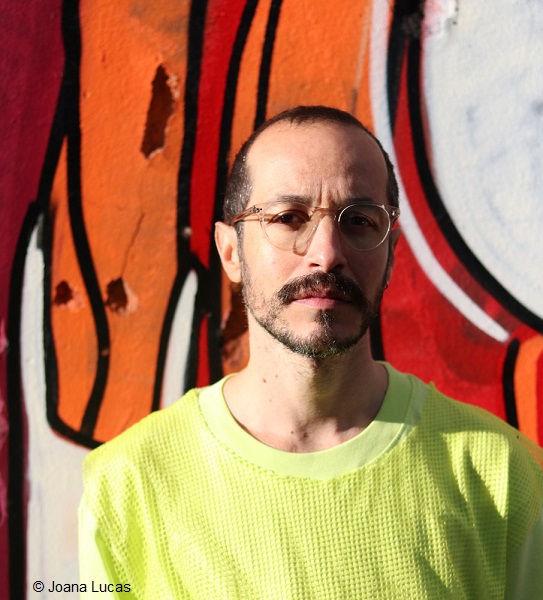ANDRÉ UERBA was born in Lisbon and raised in the suburbs where most of his inspiration comes from. He’s a Performer, Choreographer and Visual Artist with an MA in Arts, Solo/Dance/Authorship at HZT Berlin (2013-2015). Previously he studied advanced photography at Ar.Co (Centro de Arte e Comunicação Visual), Lisbon. Alongside working as a performer with various artists, Uerba founded the production house SHORT HOPE, a platform designed to research, create, produce and promote his work. His projects operate at the crossover between dance/ performance & visual works, merging dance/ performance with sculpture/ installation elements. His works are united by a particular interest in the poetics that emerge within a slower frame of realisation, where the “meaning” is revealed at another pace.
Since 2007 Uerba has been working as artistic collaborator, group coordinator and performer with the duo Ana Borralho & João Galante, in “sexyMF” (Culturgest, Maria Matos, HAU, 2006-2016), “Atlas” (2012-2018) and “Trigger of Happiness” (Frascati Theater, Wildwuchs Festival, Scène Nationale de Chambéry, Naves Matadero, 2017-2019). He performed among others in the project: “A Long Lasting Plié” by Julian Weber (Grimmuseum, 2019), “Dancing the Problem (throwing dance)” by Diego Agulló (2019), “Reindeer Ager” by Bernardo Chatillon (2019), “Male Breast Feeding” by Antonija Livingstone (HAU, 2018), “This is so Contemporary” by Tino Sehgal (Martin Gropius Bau, 2018), “Self” video work by Christian Falsnaes (2018), “The Eternal Return” by Clément Layes (STUK, Potsdam Fabrik, Sophiensaele, 2017-2018), “Aggregate” by Alexandra Pirici (NBK, 2017), “Narkosis” by Sandra Man & Moritz Majce (Tanzfabrik/ Uferstudios, 2017), “The Print of Sleep” by Naufus Ramírez-Figueroa (KW Institute for Contemporary Art, 2016), “Húmus” by Karnart (2011), “Monster” by Carlota Lagido (Eira, 2011) and “Se eu não puder dançar esta não é a minha revolução” by Miguel Moreira (2008).
In 2018 the project “Burn Time” received funding from the Senate Department for Culture and Europe (Berlin) for its development and the Wiederaufnahme support in 2019. In the same Year “Burn Time” was selected one of 17 most relevant works created in Portugal.

